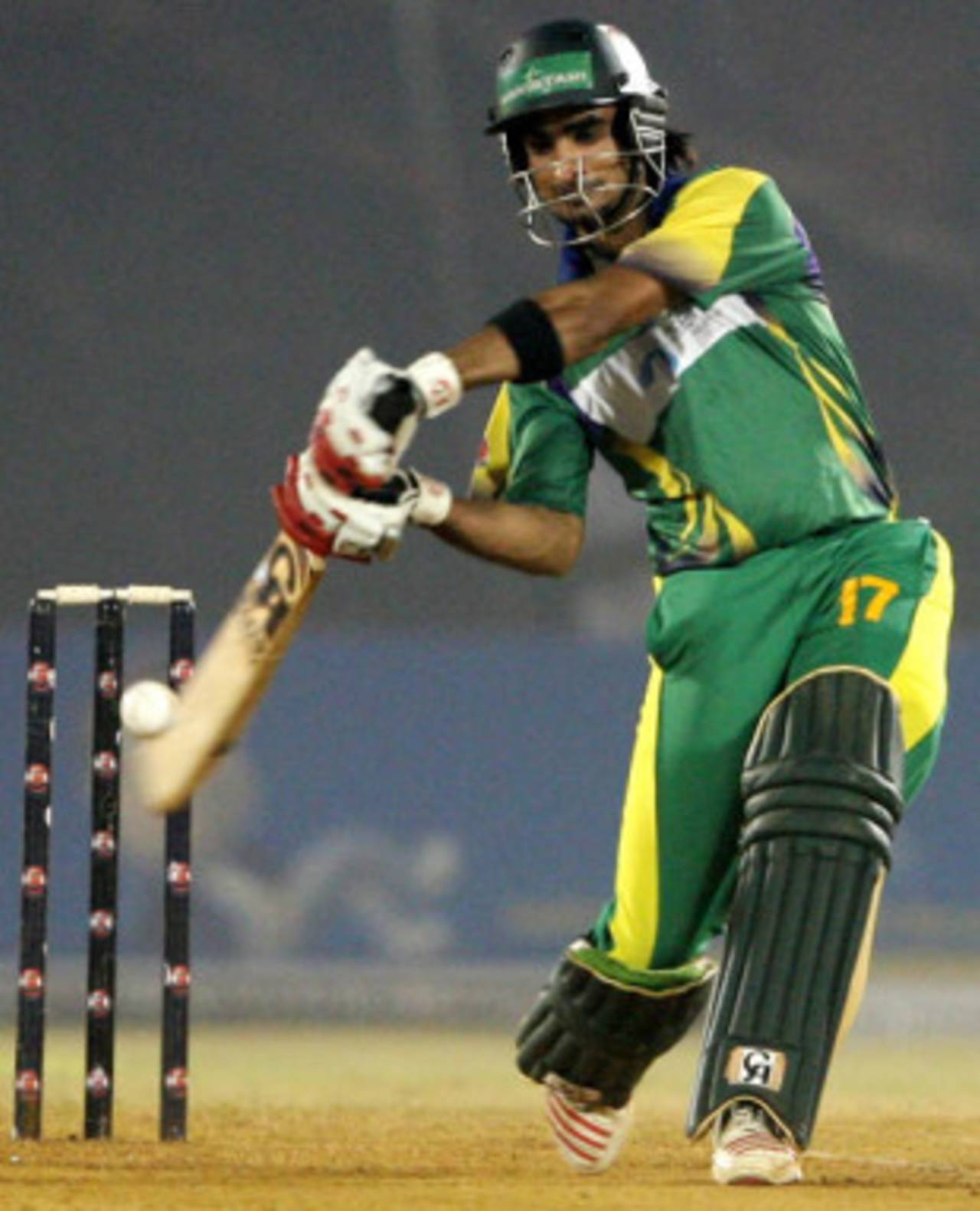The Pakistan Cricket Board (PCB) has caught both the BCCI and the ICC off guard by naming three ICL players in its list of 30 probables for the ICC World Twenty20 in June. It marks an official breaking of ranks with the BCCI, a traditional ally, and it has put the ICC, the organisers of the tournament, in a tricky position.
ICC officials are now hoping to persuade the PCB during a board meeting in Dubai next week to drop Abdul Razzaq, Rana Naved-ul Hasan and Imran Nazir, the ICL trio, from that list. The ICC will also discuss on April 17-18 the ICL's long-pending request for official recognition. It is understood that the ICC board may ask the BCCI to take a final call on the ICL's application, and the Indian board is unlikely to change its hardline stance.
The ICC and the BCCI are well aware that the the ICL is gearing for a long-drawn legal battle on the recognition issue and the official ban on its players, and what has really set the alarm bells ringing within the official establishment is the Pakistan
team announcement on Monday.
ICC and BCCI officials feel that the PCB, or at least an influential section within the board, has become a pawn in the hands of the ICL. According to them, the ICL is working on a multi-pronged long-term strategy: complicate the legal side of their tussle with the establishment by encouraging their players, who have been banned from official cricket, to cross over and return; and build a support base within the official establishment, especially among those who feel threatened by the BCCI's overpowering clout in world cricket.
On the recognition issue, the ICC has already framed new rules on official and unofficial cricket, which make it clear that only the respective home boards can decide on any request for recognition from an independent organiser. The current set of rules is not very clear in this respect, and leaves a window open for any venture to approach the ICC directly for approval, which the ICL did last year.
The ICL has never been short of allies either, even from within the establishment. Last year, it had the open support of Arjuna Ranatunga, the then head of Sri Lanka Cricket (SLC), who
allowed five ICL players and an umpire associated with the league to play a domestic tournament. This time, it appears that the ICL has on their side an influential section of the PCB, especially its legendary players-turned-officials like Javed Miandad, who is the PCB's director-general, and Abdul Qadir, its chief selector.
Miandad, apparently, has been particularly resentful of the Indian board's strong-arm methods, and has now gained more sympathisers from within his own board after the BCCI shut the door on Pakistani players in the IPL, citing government orders. In fact, in November, soon after he joined the PCB, Miandad questioned the intent behind the international ban on ICL players - a BCCI-led move - and
suggested that these players should be considered for the national team.
Pakistan's case has been boosted by a recent order from the Sind High Court, which overturned a ban on the country's ICL players from playing in domestic cricket.
In March 2008, the ICC board had resolved that ICL players should not be allowed to participate in official cricket, but left the final decision on the matter to the individual national boards and the laws that govern their countries. "Obviously, Pakistan could have prevented this situation by simply not picking those players," the senior ICC official said. "They are now passing the buck back to us. It's not a nice position to be in."
The ICL camp, meanwhile, is buoyant and a league official said it was a matter of pride for them that their players have been picked for national duty. "We have given our players the option of a
temporary release from their ICL contracts so that they can appear for their national teams," the ICL official said. Interestingly, the official refused to confirm whether they have released Razzaq, Hasan and Nazir from their ICL contracts.
According to an ICL source, the temporary release offer is just one aspect of a long-term plan the league has in place. Apparently, most of the league's calculations hinge on the general elections in India in April-May after which Subhash Chandra, the league's owner who is politically connected and owns a popular media organisation, hopes to have some sort of a say in government formation. This would then place him in a better bargaining position with Sharad Pawar, who has the final say in Indian cricket and who is currently a central minister, the source said.
However, the ICC is also clear that it won't accept a temporary release from ICL, and may ask national boards to bind those who return from the league in ironclad contracts, if they are considered for national selection. ICC and BCCI officials have also claimed that the ICL's release offer is a desperate attempt by the league to foist at least a part of its wage bill on to the national boards - the ICL had scrapped its March programme, citing the economic recession as one of the main reasons. But this is a suggestion that key ICL officials and senior players have rejected vehemently.
Ajay Shankar is deputy editor of Cricinfo
